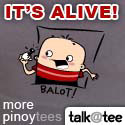Preparing for the Licensure Exams: Review Tips
Preparing for the licensure exams can be a nerve-wracking process. The sheer amount of materials that test-takers need to review plus the increasing pressure to perform well as the big day slowly approaches can take its toll even on the brightest and most hardworking students.
Even though this is true for a lot of people, there are ways to make the process less tricky and more enjoyable. Below are some simple tips that you can try for yourself.
Do Your Research
The boards of the different licensure exams administered by the Professional Regulatory Commission all release outlines of the scope of the exams ahead of the test, so make sure you get a copy of the ones that apply to the exam that you will be taking because it will allow you to focus on what you really need to study as well as plan how much time you would need to spend on each in advance.
Aside from the official outline released by the PRC boards, there are also online forums that people who have taken the licensure exams before as well as people who work for review centers frequently hang around at. This is a good place to ask specific questions or just seek general advice before the exam because they have inside information that you may not be able to access somewhere else.
Set Goals
Reviewing four or five year’s worth of lessons can be overwhelming, but if you break them down into segments and tackle them one at a time, you will find the whole thing a lot more manageable.
List down everything you need to study, then write down how much time you think you need to allot to each. Every time you finish an item, cross it off your list — slowly working your way from the first goal to the last one.
If you want some additional motivation, you can also devise a reward system to give you something to look forward to everytime you start tackling a new goal. Indulging yourself with a bar of chocolate, slipping away for a few minutes to chat with loved ones, or watching a three-minute comedy skit every time you finish studying a topic can go a long way to keeping your mind refreshed, preventing stress from building up, and making the time seem to pass faster than usual.
Figure Out Your Learning Style
People learn things differently, so you need to find out which learning style works best for you.
For example, there are visual learners who find things easier to learn if information is presented in figures and diagrams. If you belong to this group, including helpful illustrations in your review materials can help you remember how things work better.
There are also auditory learners — people who learn best when they hear the things that they need to learn. People of this type typically finds it easier to remember things if they are read out loud to them.
Additionally, there are people known as tactile learners, and they learn best if they can have any sort of physical contact with the things that they need to study. People from this group typically find it easier to learn things if they can act out the concepts that they are trying to study. In the absence of physical objects to touch, writing down everything they need to remember from scratch also works.
There are plenty more learning styles aside from the three, and people are not limited to any particular one, so don’t be afraid to experiment with different approaches then build your studying routines around them.
Mix Up Your Studying Routine
When people need to study multiple subjects for an examination, a lot tend to focus on one subject — trying to absorb as much information as they can before moving on to a new one (a studying technique known as “blocking”). While this works for certain people, several studies have implied that interleaving, a technique where you study different topics alternately, can actually be more effective in remembering things for longer periods of time.
For example, you need to study seven different subjects for an exam that you will be taking in a week. Instead of devoting a whole day for each (like science for Monday, English for Tuesday, and math for Wednesday), you switch between subjects after shorter periods of time (like science for the first two hours, English for the third and fourth, and math for the fifth and sixth).
According to researchers, this works because, in blocked learning, our brains only need to focus on one topic at a time. Once this topic has been covered, our brain categorizes the task as “accomplished” and would consequently push it back at the back of our minds as it moves on to another topic to review.
Think of the things that you learn as pairs of shoes, interleaving as the pair that you regularly wear, and blocked learning as that one pair that you’ve only used for a special occasion once. Which one can you find more easily if you needed to go out?
Chances are, it’s the one that you frequently wear because it’s stored in a place where you can easily retrieve it as opposed to the one that you rarely wear that you probably threw away in some corner that you cannot currently remember.
The same goes for our brains. Our brains tend to prioritize the things that we need to use on a regular basis over the things that we only need to use once or twice. By repeatedly studying subjects at shorter intervals, the brain forces itself to hold on to the things that you learned for a longer amount of time because it knows you are going to need them again soon.
In addition to helping us remember things for longer periods of time, interleaving also forces our brains to pay extra attention to the similarities and differences between the topic we were previously reviewing and the ones we are currently reading,
Imagine it as being asked to take a look at two identical pictures. For the first picture, you were never told to do anything other than look. What did you see? Now for the second picture, you were specifically told to find the minor differences between the seemingly identical pictures. What did you see?
For the first picture, you probably took a quick look and decided, “Meh, I don’t see anything special,” and simply forgot about it afterwards, but since you know that there’s something different about the second picture no matter how seemingly identical it is to the first one, your brain automatically worked extra hard to find that difference, and now every detail is suddenly clearer and easily recalled at will.
The latter is how interleaving works, allowing for a more deeper analysis of the topic being studied instead of simply memorizing everything mechanically.
Eat Healthy Food
No, really. A lot of people appear to be unaware of the connection between eating healthy food and keeping our brains sharp. You see, there are specific nutrients in certain foods that can allow our brains to operate at its maximum capacity.
For example, Omega-3 fatty acids found in food like walnut, squash, kale, strawberries, salmon, scallops, and cod can be helpful in improving memory function — allowing our brains to store information for longer periods of time.
Foods low on Glycemic Index (like whole grains and berries), on the other hand, help our bodies process food better, allowing more nutrients to be absorbed and utilized — helping both our bodies and minds stay alert for hours on end.
Additionally, food rich in magnesium like tofu, bananas, and oatmeal are known to help in reducing stress and anxiety which can be very helpful when you need to tackle a lot of work during a limited amount of time.
These are just a few examples of things that you could do to help you prepare for the licensure exams — with focus on the review process. Next time, we’ll share a few more tips — focusing on the things that you should and should not do before and during the exams itself.





